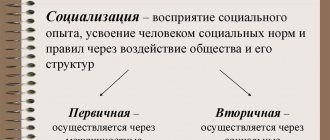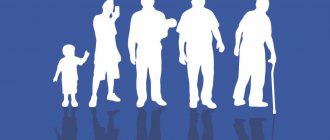The reason for additional searches for an answer to the question: “what is freedom?”, for me, was initially a great desire to gain financial freedom in my life. After all, any person, in principle, wants to receive adequate monetary compensation for his work.
But over time, it turned out that the concept of human freedom is more important for his life than just personal finances, and extends to almost all its areas, even if the person himself does not think about it at all.
One has only to admit for a moment that difficulties with personal finances may be a consequence of unresolved problems in other areas of my life, for example, in the sphere of relationships, then immediately options appear for qualitative improvement of its individual aspects.
Psychology of freedom. Is freedom real?
The feeling of freedom contains a colossal potential of vital energy, motivating people to take action, to express their will and desires, and to reveal the full depth of their personality.
The psychology of freedom deals with the study of the concept of freedom in the process of a person making life decisions, how a person understands freedom, how he experiences the sensations of freedom and lack of freedom.
At the same time, two main theories of freedom are considered: its search and flight from it.
Personal freedom is not a goal, but rather an open path to opportunities to achieve your dreams and life purpose. If a person knows what to do with his freedom, he will be happy when he receives it. At the same time, freedom can be both external and internal. External freedom, or physical freedom, is the absence of material obstacles. Those.
Throughout our lives, we choose actions, words, people, relationships, a house, a dog, the blanket we sleep under, the morning newspaper, the ice cream at the store. And if we feel that we are making choices that we like, then we feel that we are living well. We are happy with what happens to us, we don’t feel that we are limited by anything.
Psychologists say that a person always has a choice, but what he chooses depends on how much this internal freedom is present in him.
There is another, reverse side to the attitude towards freedom: when a person is afraid of it, does not know what to do with it. The psychology of freedom suggests that sometimes a person needs ethical, moral, value restrictions in order to choose a life path, a model of behavior, determine his goals and be happy.
When they think about absolute freedom, such people become confused and begin to get scared, because they suddenly feel like a solid foundation of rules, education, and the importance of the opinions of others is disappearing from under their feet. For them, freedom can become a source of suffering, disappointment, painful emotions, isolation and loneliness
It exists, it is real, but a person is afraid to accept it, so it is easier for him to say that he is not free in his decisions due to circumstances.
Thus, freedom is the opportunity to fulfill one’s desires, but it is not a guarantee that everything will certainly work out.
It needs to be treated carefully and thoughtfully, because often our freedom really ends where the freedom of another person begins.
This is the law of harmonious coexistence of people on Earth, which should not be ignored. It makes our freedom quite conditional.
Download this material:
Determinism and indeterminism
In understanding free will in accordance with these two sides of the antinomy, two main philosophical positions have emerged. The first of them is determinism (from the Latin word meaning “causing”, “determination”). Representatives of this direction believed that the will should be explained by certain reasons. The second is indeterminism, which rejects this possibility. In accordance with the various factors (spiritual, mental, physical) that are recognized as the cause of volitional actions, among the concepts of determinism it is customary to distinguish between mechanical, or “geometric” determinism (Hobbes, Spinoza) and psychological, or mental, less strict (T. Lipps). The most consistent indeterminism can be considered the teachings of Maine de Biran and Fichte. However, indeterminism taken to its logical conclusion rests on the so-called freedom of indifference, that is, the equal possibility of opposite decisions. This, in turn, leads to paralysis of the will (remember, for example, “Buridan’s donkey,” that is, the need to choose between two equal alternatives), as well as to the absolute randomness of the choice made. Arguing this way, it cannot be argued that every person is free. Therefore, in the history of philosophy, the principle of mixed (eclectic) doctrine turned out to be predominant. This is, for example, Kant's dualism.
Freedom for exploits
Despite the high need for freedom, a man also has an “instinct of return”
It is important for a man to return, to return to his home, to his woman and child
He is attracted not only by sexual instinct, but also by the psychological need for a permanent home. Even nomadic tribes move their home with them. A man needs consistency and predictability in the space of his home. This creates security for him, as opposed to the dangerous, changeable, unpredictable world with which he (unlike a woman) constantly deals, moving far from home, exploring new spaces. This consistency and predictability at home is what a woman creates.
It is important for a man to “go to exploits” in the big world, and if he gives up freedom and “exploits”, he will lose self-respect, and it will be difficult for a woman to respect a partner hiding from difficulties in the small closed world of the family. There is no need to try to symbolically lock him at home and not let him go
Instead, you can shift the emphasis: create a space at home, a symbolic space of relationships, to which a man will want to return after his “exploits.”
When building relationships in a couple, it is important to always remember that only by respecting your partner can you receive respect in return
Kant's dualism
According to this philosopher, being a rational being, belonging to the intelligible (intelligible) world, a person must be free (in determining his behavior, in moral life). However, in the empirical (experienced, natural) world, in which natural necessity dominates, people are not free in their choice, their will is causally determined.
freedom of choice
Does a person have Freedom of Choice? Does he have the right to choose his own path or is everything predestined? Is karma inherited from a previous life or from parents?
Intriguing questions to which many already have their answers.
Some argue that everything is written down and we are just puppets of the script, some will delve into a past life, some will simply say lucky or unlucky.
Everyone has their own truth, but that doesn’t make it any easier, of course, until you have your own, and this is your free choice. In general, I propose to abstract from all the canons and figure out your answer yourself.
Who do you blame when life takes a turn for the worse? When is depression? When there is no money and nothing works out? Corrupt politicians? Greedy boss? Maybe God is to blame for the fact that you cannot understand economic systems and goal setting? What does this have to do with it, you ask. After all, they really are all to blame, just not me.
Nothing bothers you? It is common for a person to react to an event that does not correspond to the idea, to react with dissatisfaction and accusation.
This characteristic originates in childhood due to the overprotection of parents and, in essence, depression and hysteria are the claims of a person who is outraged that something did not happen the way he would like it to.
Freedom to choose responsibility is the whole essence of personal success. Count the number of choices you make per day? What about a month or a year? Wake up early or late? Read a book or watch a show on TV? Buy a yoga subscription or go to a nightclub for the same money? Freedom of choice is measured by responsibility in making appropriate life choices.
“We today are the consequence of us yesterday and the cause of us tomorrow”
A. Meneghetti
It turns out that our every choice is the reason for our future and the future of our children. Of course, there are people who, for various reasons, cannot take full responsibility for themselves - these are small children.
“Children are always holy.” If they get sick, it is only because they experience conflicting influence from close adults. Psychological practice shows that behind every sick child the influence of an unhappy adult can be seen. And only by curing adults can we guarantee the health of children.”
Psychology has discovered that a person in adulthood retains the patterns of behavior learned in childhood, and if this behavior is erroneous, then it remains so throughout life. If you don't change it...
Free your thoughts
An internally free person differs from an unfree person in his thinking. Such an individual is able to easily control his own thoughts and emotions. If you are a dependent person, but this state of affairs does not suit you at all, start thinking like a free person. To do this, you will definitely need to pay attention to improving your personality. Of course, this internal work requires significant moral effort, and the result will not be visible as quickly as we would like. However, you should not stop there, but move forward. Eventually you will be able to control your mind.
Freedom or responsibility
The definition of human freedom has changed over the centuries. In the modern sense, they first started talking about it during the Renaissance. It was then that people began to be considered the highest value, and their freedom an inalienable right.
During the reign of the Protestant Reformation, the word “freedom” changed its meaning slightly. It implied the opportunity to find your own way to God and interpret the Bible in your own way.
Since the 19th century, individual freedom has become synonymous with self-expression. It meant economic stability, the ability to independently choose religion, behavior, and social circle.
Nothing has changed these days
Personal freedom occupies an important place in the structure of society. The individual is free to set priorities, choose goals and methods for achieving them
But there is one condition. Your freedom must coexist harmoniously with the freedoms of other people. This is called responsibility. A more free person is also a more responsible person. The reverse situation is called arbitrariness.
The meaning of solving the problem of freedom and necessity
Of great practical importance is the philosophical solution to the problem of the relationship between such concepts as “freedom of the soul” and “necessity” in the behavior and activity of an individual. This is important primarily for assessing people's actions. Neither law nor morality can ignore this problem, since it is impossible to talk about legal and moral responsibility for actions without recognizing the freedom of the individual. If people act only out of necessity, and they lack freedom of soul, then the question of a person’s responsibility for their behavior loses its meaning. Then “retribution according to deserts” is either a lottery or arbitrariness.
Down with restrictions!
Russian will is precisely “freedom from”, a spontaneous impulse, and does not provide for any constructive continuation. In general, the fight against any restrictions is a striking psychological feature of our nation (which does not exclude our inherent willingness to obey - as we know, extremes meet). “Addiction to alcohol, so characteristic of Russia, means, from a psychological point of view, precisely a refusal of self-control.
And self-control is one of the limitations, only not external, but internal. We strive to avoid any control over ourselves.”
Finding the causes of this phenomenon is a task for large-scale research. But it can be assumed that our stubborn desire for “freedom from” in the absence of “freedom for” is connected with history. Serfdom - and in fact slavery - was abolished in Russia only in 1861, later than in European countries. Moreover, freedom (with many reservations) was brought down from above, and not won from below. This is hardly the best way: there is no freedom without liberation. For us, the path to gaining freedom and the ability to manage it has largely remained untraveled.
Schelling's concept
Schelling's concept also bears traces of such duality. This thinker defines, on the one hand, freedom as an internal necessity. On the other hand, he recognizes that the nature of the initial choice is self-positing. The latter nevertheless prevails in Schelling. This philosopher says that man is at a crossroads. He has within himself a source of free movement towards both evil and good. The connection of these principles in him is free, and not necessary. Whatever a person chooses, his action will be the consequence of his decision. Thus, free life is a dual concept.
A home you want to return to
But in ancient times a man had a different role - that of a protector and provider. He must be as free as possible in order to perform these functions, cover the maximum possible space in his search, obtain as much food as possible - and the best food possible. So a man’s need for freedom is higher than a woman’s.
You cannot tie a man to yourself, limit him. This will symbolically “castrate” him (deprive him of his masculinity, he will no longer feel like a man) or even kill him, as in the film “Out of Africa”. What to do?
Instead of limiting and tying a man to herself, a woman can build a relationship in such a way, create an atmosphere in the house such that the man wants to return there again and again. Moreover, voluntarily, and not due to obligations or despair. For this, a woman needs self-confidence and contact with her femininity. Then she will wait for the man calmly and relaxed, without worrying or calling on his mobile phone.
Philosophy of life
This irrationalist school of philosophy originated in Europe at the end of the 19th century. Its founder is F. Nietzsche. The philosophy of life was developed in the works of A. Bergson, W. Ditley, Schopenhauer and Spengler. She opposed the era of romanticism and rationalism that dominated at that time. Schopenhauer, combining Kantian and Buddhist ideas, declared that the world's will is the most important thing.
Nietzsche rejected the use of rationalism and reason in philosophy because it could kill life. It was proposed to rely on feelings and intuition as knowledge. Nietzsche thus solved one of the main problems of philosophy - the relationship between thinking (mind) and life. He divided them and thereby attracted the attention of many other thinkers. This philosopher, having introduced the concept of “life”, declared that it was the source of everything. Everything comes from life: consciousness, matter, living beings, etc. Life, in his opinion, does not disappear in the absolute, since it is inherent in us. Nietzsche also introduced a new concept - “will to power”. It is the main driving force of evolution, its stimulus, and permeates the entire existence of man.
Stable figure
A few years later, the social situation in the country changed dramatically. Many life guidelines and norms simply disappeared; they were replaced by completely different social demands. “When we repeated our experiments in the mid-1990s,” says Dmitry Leontyev, “we saw that teenagers had become different. Freedom and responsibility have ceased to be the main parameters
, and we no longer found the same clear structure.”
Since then, similar studies have been carried out several times with the participation of adolescents from various social groups, from children from orphanages to children from wealthy families. And each time only one type was clearly defined: autonomous. “The fact of the matter is that these are free people who do not depend on the perturbations of society and the environment,” explains Dmitry Leontyev. In all groups and at all time stages, the number belonging to the autonomous type was approximately the same - 25%.
One can assume (although such a conclusion will obviously be too bold) that this figure indicates the percentage of potentially free people in society. At least in Russia.
Survey
53%
Russians believe that “the state should ban books and films that offend morality.” Moreover, the number of those who think so has been growing since 2002, when 43% were in favor of strict censorship. And only 18% of fellow citizens believe that “any censorship is unacceptable; a person must decide for himself what to read and watch.”
43%
tend to give up freedom of speech and civil rights, in particular the opportunity to travel abroad, if the state provides them with a decent salary and pension. 20% of respondents strongly disagree with such an “exchange.”
57%
advocate that the authorities exercise tighter control over the economy and political life in the country, and only 34% of respondents would like the country’s leadership to be given “the freedom to mind their own affairs and ensure that they do not break the law.”
According to Levada Center surveys in June 2013.
Do what you love
According to experts, free people try to make their favorite business bring them profit. To do this you just need to love your job. There can be no talk of inner freedom if you treat your work like hard labor. In addition, you are absolutely dependent on your boss or director, who determines the size of your salary.
Thus, while doing something you don’t like, you are financially and psychologically dependent on another person, who sets you the program by which you must live. Undoubtedly, money is very important in our world. However, chasing profit, the individual becomes their hostage. To improve the situation, you don’t have to become a hermit or throw your own financial well-being aside. If you don’t know how to become free and happy, find yourself an activity that would become your permanent source of income or additional income. The main thing is that you work in the area in which you are interested. As a result, you will be filled with only positive emotions.
External manifestations
“All people are born free,” those who wished for a better fate for humanity repeat (and have loved to repeat at all times). But there have always been those who felt: our relationship with freedom is not as simple as it seems at first glance. Many generations of schoolchildren have regularly explored in their essays “the theme of freedom in Pushkin’s lyrics,” but only at an already uncomfortable age can one appreciate how many different faces of freedom coexist in Pushkin’s lines: natural (will), love, rebellious-romantic, liberal, freedom of the poet, finally.
Psychologists have their own view of freedom. For them, our innate freedom, to put it mildly, is not obvious. Simply because psychology associates freedom with our actions, and not with ourselves. And as long as there are no actions, there is no point in talking about human freedom, or rather, there is no reason.
However, a child, when born, performs many actions. And let's say, in a loving family, a child sleeps if he wants to sleep, eats if he wants to eat, and also crawls, jumps and plays - also when he wants it. Does this mean he is free? No, because all these actions are manifestations of spontaneity, immediate impulses, explains psychologist Dmitry Leontiev1.
“Freedom correlates with spontaneity as a higher mental function with a lower one. The lower mental functions act on their own, as if mechanically. Higher functions are what we perform consciously, based on our own experience and ideas about how to act.” And although outwardly the manifestations of higher and lower functions may be similar, their causes are often completely different.
So what actions can be considered true manifestations of freedom?
Those that we do with a clear awareness of the consequences and a willingness to answer for them.
And if, for example, a car alarm is blaring under the window in the middle of the night, then immediately throwing a flower pot on it is a manifestation of spontaneity. But if, when throwing, we realize that an angry neighbor with a crowbar in his hand will now appear on the threshold, then this is freedom. By the way, this means that to act freely does not mean to act well;
freedom is not an evaluative category at all. Freely - that is, of one's own free will, with full awareness of the consequences and readiness to answer for them - one can commit very bad deeds.
Andrey Arkhangelsky, journalist
“Where does the desire, the demand for freedom come from? Unclear. Irrational. Even Fukuyama wrote: “This is a mystery.” Out of nowhere. But this is the mechanism. People are standing on Tverskaya, shouting: “Freedom, freedom.” If you know the context, then this means “freedom for Navalny.” But there are two foreigners standing nearby. From their point of view: “People came out and demanded freedom.” Everything is clear to them. And there is no need to clarify. This happens everywhere. It’s so clear: people demand freedom. A year and a half has passed - nothing at all - but people have already understood everything, they demand the most important, fundamental thing. We got to the point."
Hegel's opinion on freedom and necessity
The dialectical formulation of the problem of necessity and freedom that interests us is most clearly expressed in philosophy by Hegel and Spinoza. Hegel believed that freedom is a conscious necessity. However, this thinker, proclaiming freedom of will, essentially endows it with the “world spirit” (that is, the absolute idea), and not with man. After all, in this case it cannot be said that a person is born free. It is Hegel’s “world spirit” that is the embodiment of free will in its pure form.
Choose your path
“For me, the connection between freedom and psychological well-being is obvious,
– Dmitry Leontiev summarizes. – A person who chooses his own path feels better. And if this is not done, then sooner or later the lack of freedom will make itself felt. Psychosomatic health problems, a feeling of emptiness in your life.
Another thing is that it is very difficult to be free. Responsibility presses. In addition, in Russia, freedom is hampered by fear that has historically lived in us. And in the West - hedonism, the opportunity to exchange this freedom for a new portion of material wealth. In short, we can assume that being free or not is a matter of taste.” This idea was formulated with exceptional precision in an interview by the sculptor Ernst Neizvestny. He said, “In a free society no one can force a man not to be a slave.”
1 Doctor of Psychological Sciences, Professor of Moscow State University. M. V. Lomonosova, head of the laboratory at the National Research University Higher School of Economics.
2 E. Kaliteevskaya, D. Leontyev “Ways of developing personality self-determination in adolescence.” Questions of psychology, 2006, No. 3.
3 V. Magun, M. Rudnev “Basic values of Russians in the European context.” Social Sciences and Modernity, 2010, No. 3–4.
Where to begin?
How to become free? What should you do first for this? Experts recommend analyzing the situation and determining why you cannot be free? There are several factors that make us addicted:
- The presence of various fears and complexes. Most often, they make an individual insecure.
- Dependence on other people's opinions. Often people live according to stereotypes that are accepted in society.
- Financial well-being also plays a big role.
- Lack of independence.
- Avoiding the fight. As a result, a person cannot act decisively.
In addition, it is very important to always be yourself. Once the reasons that make us dependent have been identified, we should begin to work to eliminate them.
Freedom is the basis of relationships
Truly loving yourself is a very subtle and deep penetration into your essence. This is unity with your soul, this is unity with God. Therefore, there are not many people who truly love themselves. This is what creates problems for humanity.
It is especially difficult, even probably impossible, to show true love for yourself and for another person when you forget about freedom. If they still think and talk about love, then they talk about freedom much less. But without freedom there is no true love, just as without love there is no true freedom! Love and freedom are such interconnected categories that they are, in fact, the essence of one thing, and that is God!
Complete freedom of each individual is the natural and spiritual path of development! The absence of this thought in a person’s consciousness prevents the true manifestation of love.
It becomes inferior and, as a result, love is divided into human and divine.
When there is no or insufficient freedom in love, jealousy, hatred arises, or love is identified with pity and a person goes to self-humiliation and then self-destruction.
If this principle is placed at the forefront of the relationship between a man and a woman - initially, from the moment the relationship begins - then attachments and the desire to turn a partner into your property will disappear.
Then there will be significantly fewer divorces, and love is stronger (freedom strengthens love!), and there is a larger space of love in which children will be happy.
Children born and raised in love and freedom will be harmonious and their relationships with life will be harmonious.
If people thought about freedom as much as they think about love, realized their inseparability, and strived to discover freedom as well as love, then life on Earth would change radically. Human love in this case acquires divinity.
In fact, freedom does not come, and it is not given - it is inherent in a person from the very beginning. Man is freedom itself! Freedom cannot be incomplete. She either exists or she doesn’t. Therefore, the slightest infringement of freedom is an infringement of the very essence of a person, and it torments and humiliates him and forces him to give his life for the sake of freedom.
What is it - “this sweet word - freedom”!? Each soul comes into this life to solve its own problems, gain its own experience, and no one has the right to violate the free will of this soul.
To believe that if there is a stamp in a passport, then you have every right to the fate of another person is absurd.
That’s why bewilderment arises: “we love each other, but why do we have problems with health and finances? Why is there not enough joy and happiness - after all, when there is love, then everything should be wonderful”? Look more closely - is freedom manifested as strongly as love? If not, then love is inferior, and it is this inferiority that creates problems.
Now many consider themselves believers, but God is absolute love and absolute freedom! Not observance of rituals, but love and freedom manifested in life - this is true faith in God.
Complete freedom is the basis of relationships, otherwise they do not work.
Where there is no freedom, there is no love! You need to learn this well and strive to bring as much freedom into your life as possible, then love will be shown to a sufficient extent both for yourself and for others. The development of freedom is the development of love. And when you feel that love has stopped growing, look, is freedom growing? More often than not, love stops growing due to lack of freedom.
Both partners in a relationship are free to express their wishes and preferences.
The free choice of one of the partners should not offend or offend the other. To be offended and offended means to deny your true essence and the true essence of your partner. When this happens, it means people have forgotten who they really are.
Here is a simple but fail-safe test for the presence of true freedom in a person. Imagine that your loved one (beloved) has fallen in love with someone. Deeply, sincerely, honestly rejoice at this! If you can, then this is true freedom, this is true love. If not, then acknowledge the task and act, that is, you need to work on yourself.
Just not through indifference! Indifference to the life of a loved one, to one’s own life, is already a departure from God. And when someone appears around a person to whom he is indifferent, this is a signal that the person is turning away from God.
“Motherly Love”, Anatoly Nekrasov
The problem of freedom in philosophy
It should be noted that in philosophy the problem of freedom is usually conceptualized in relation specifically to a person, to his behavior. In nature, freedom is considered as an “unknown necessity”, an accident. The problem that interests us received its development in such issues as free will and the associated human responsibility. The problem of the very possibility of being free was also touched upon; they talked about freedom as a force that regulates social relations. Probably, no philosophical question has such a great political and social resonance as the one that interests us. It is very important to determine who a free person is and whether people can be considered free at all. Why? Let's figure it out.
Freedom of the individual
| senior page | | | list of directions | | | free search for technicians |
To psychotechnicians To books
Personal freedom or personal freedom, what is it? Personal freedom, when a person can freely express his will, when a person can act in accordance with his views, desires, interests.
But it is worth considering that freedom does not have a clear and generally accepted interpretation. But to understand, you can go from the opposite, freedom is the opposite of slavery, here we mean when we do something to please others and to the detriment of ourselves, this is slavery.
There is no freedom of choice to express your desires or to realize them.
But there is also a theory, quite common, described by Fromm in the book “Escape from Freedom”, where he considers the problems of ethics, norms and values that lead a person to self-realization and the realization of his capabilities: “Our behavior is largely determined by value judgments, and on them our psychological health and well-being are based on validity
You may also be interested in books related to
Wadi A. - Become a free person - Freedom is what everyone wants. Freedom is a condition for happiness. Fortunately, human freedom is his inalienable right.
But is this really a free man? What is real personal freedom and how to achieve it?
Gracheva L.D. — Training of internal freedom — The exercises presented in this book are aimed at actualizing creative potential: developing perception, reactivity, attention, imagination, gaining muscle freedom, liberation from the “armor of character,” etc.
They are used in the actor training program at the St. Petersburg State Academy of Theater Arts, but can be used with equal success in teaching any creative specialty, since they do not train the professional skills necessary for one or another type of creative activity, but teach the human body something new to it. psychophysical states, new perceptions, new reactions, unusual emotional involvement.
Leontyev D.A. — Strategy of freedom — The problem of freedom is one of the main ones in philosophy.
Finding ways of liberation from any form of coercion, censorship and restrictions that go beyond the natural need for self-preservation of society is a significant achievement of the philosophy of mind.
In addition, there are quite serious reasons to consider rational knowledge not only a means of liberation from crude forms of coercion, but also an instrument for the implementation of other, perhaps more liberal, but at the same time deeper and more effective mechanisms of power.
Therefore, it is necessary to reconsider the seemingly organic unity of reason and freedom, to supplement critical reflection with the discovery of those methods that are used in the mutual game of power and knowledge, and also to pay attention to the emergence of new forms of repression and manipulation associated with the management of various norms of life of people. Fromm E
— Escape from freedom — One of the fundamental works of Erich Fromm — “Escape from freedom” — is devoted to the psychological aspects of power, dependence and personal independence
Fromm E. - Escape from Freedom - One of the fundamental works of Erich Fromm - “Escape from Freedom” - is devoted to the psychological aspects of power, dependence and personal independence.
“Can freedom become a burden that a person cannot bear, something that he tries to get rid of? Why is freedom a cherished goal for some, and a threat for others? “Isn’t there - in addition to the innate desire for freedom - also an instinctive craving for submission?..
Isn't submission a source of some hidden satisfaction; and if so, what is its essence?
Psychotechnicians by specialty
| How to increase self-esteem Self-knowledge Personal freedom |
| Step 52 from the “Developing Confidence” training. |
| unisex |
| for adults |
| individually |
| gestalt therapy |
| Nina Rubshtein |
| Manipulation of people Development of activity Personal freedom |
| An exercise in personal freedom. |
| unisex |
| for teenagers and older |
| individually |
| art therapy |
| unknown |
| How to develop self-confidence Team building Personal freedom |
| An exercise for team building and the removal of emotional and behavioral rigidity. |
| unisex |
| for any age |
| in Group |
| art therapy |
| unknown |
| senior page | | | list of directions | | | free search for technicians |
Practical recommendations
Following simple but effective tips will help you gain inner freedom and self-confidence.
Understand what's stopping you from being free
This must be done at the very beginning of the path to internal liberation. There are 7 factors that make a person dependent:
- fear, self-doubt, complexes;
- public opinion, stereotypes;
- dependence on money;
- inability to make choices independently.
Once you determine the reason for the lack of freedom, act decisively. Eliminate the listed factors one by one.
Conquer your internal barriers
These include all the same fears and complexes. This is usually a consequence of past failures. It also happens that parents, having failed in some business, unknowingly program their children for it. This is the first and most important barrier.
Be sincere to yourself
There are people around who know how to live your life. Do not rush to show a rebellious spirit and contradict them. Calmly listen to their opinion, but act as you see fit.
Remember, each person has his own life. And everyone is free to manage it in their own way.
But there is one thing. Before you learn to defend your opinion, you need to find it. Sincerely tell yourself what you think about this or that matter, decide on your desires and goals. Become an individual. This is a direct path to personal freedom.
Learn to make your own decisions
The lack of this skill makes people dependent. But why are they so afraid of independence? There are 2 reasons:
- Ignorance. The person does not know what to do next, is not sure of the correctness of the decisions made, and is afraid of the consequences. Changing the situation is easy. Explore the world around you. We are not talking about biology, botany and other sciences here. Get information about your rights and options. Make time for self-development.
- Lack of practice. How can you become independent and free if you don't practice making decisions? Of course, no one is protected from failures and mistakes. But inaction will not give you freedom. So don't be afraid to make your own choices. Take risks.
The main thing in the matter of independence is to want to change. If there is no such desire, there will be no progress either.
Free yourself from material dependence
Money provides many opportunities and a certain freedom of action. But if they are used incorrectly, they take a person into slavery. That is why financial well-being cannot be made the goal of your entire life.
There is no need to become a hermit. It's better to reconsider your attitude towards work. If possible, do something that generates income and at the same time gives positive emotions. This is personal freedom.
Constantly try new things
This advice can be rephrased: free your mind from the shackles that hold it back. Personal freedom implies the absence of restrictions and stereotypes. Their presence is called slavery. It's easy to get rid of. Open yourself to new sensations, knowledge, emotions. Try new activities, learn foreign languages, meet interesting people. In no time, you will feel unprecedented freedom. Traveling will also help you free yourself. Take time to visit new places. You don't have to go to another continent. You can go to a neighboring city this coming weekend or even explore unexplored corners of your own.
Read
Particular attention should be paid to the biographies of famous people who managed to become independent. Their example will be a motivation, an incentive to develop and move forward. The result is personal freedom, good mood, self-confidence.
Learn to manage your own life
Otherwise someone else will do it. A person who constantly doubts himself easily becomes a victim of manipulators. Therefore, take responsibility for yourself. Don't be led by others. Don't do anything you don't like. Learn to live according to your desires and views.
Surround yourself with worthy people
It is important that there are those around whom you want to imitate. Life is a kind of role-playing game. And, most likely, there is a character in it that you want to be like. There is no need to mindlessly copy his behavior and actions. This is already a certain amount of slavery. Learn from the examples of successful people about determination, perseverance and independence.
Never compare yourself to others. On the one hand, competition encourages you to become better. On the other hand, it is often the cause of depression and self-doubt.
Give yourself permission to act impulsively
Remember, you don’t have to live according to a set schedule. The day is not just oatmeal and coffee with milk for breakfast, work and a light dinner. First of all, these are new emotions. Do you want a Mojito and seafood for dinner today? Why not allow yourself such a deviation from the rules? Or maybe you want to add a little pop of color to your casual office attire? Take action!
The absence of monotony in life equals personal freedom.
How to achieve: the line between independence and indifference
People who do not value the freedom of their loved ones sometimes simply do not notice how much their individual boundaries are being violated. They live in an atmosphere of constant internal tension. In such cases, quarrels and conflicts become constant companions of relationships. How can you maintain your personal freedom without offending your significant other? Is there a line between independence and indifference? What is it?
Measure in everything
You need to learn not to go too far in relationships. There is no need to try to impose your position when your expectations are not met in some way. Maintaining freedom means being wise and being able to admit your mistakes. It is worth remembering that conflicts happen to everyone. No one has ever managed to build an ideal relationship, but you can try not to violate personal boundaries. The emerging contradiction in views and judgments in itself does not mean anything bad. Difficult situations sometimes unsettle you and significantly spoil your mood. Relationships begin to suffer from constant suspicion. But you need to find the strength within yourself to rise above everyday disagreements and concentrate on the main thing.
To be youreself
People often try to defend their own independence and at the same time do not understand the true motives of their actions. Being yourself is an extremely valuable acquisition, the essence of which, unfortunately, is not revealed to everyone.
The most important thing is to stop playing some externally imposed role. You need to find the strength to listen to your individual origins: to understand the reasons for your actions and actions.
The union of two mature people will be truly harmonious and beautiful. Only you definitely need to work on them: look for joint solutions, try to understand your partner in any situation, and abandon groundless accusations.
There is no absolute
The point is that there is not and cannot be unlimited freedom from everything in the world. A person is designed in such a way that he constantly learns something, makes mistakes, moves forward, and draws appropriate conclusions. There is no need to always try to seem perfect in everything. It is useful to learn to notice your own mistakes and work on existing relationships.
Thus, maintaining personal freedom is as important as caring for your partner's well-being. In other words, being an individual is incredibly difficult, but at the same time, any efforts made in the right direction will lead to the expected result
Freedom often has to be defended even before a loved one, but this makes it even more desirable and significant. Relationships in which there is a certain degree of freedom only benefit, become cleaner and brighter. If you are unable to find peace of mind on your own, you can seek help from the Irakli Pozharisky Psychology Center. Working with a specialist will help you understand existing problems and restore good relationships. The main thing is not to despair and draw hasty conclusions.
Existentialism and essentialism
The solution to the antinomy “necessity or freedom” depended in the history of philosophy on which direction the philosophers belonged to - existentialism (from the Latin word meaning “existence”) or essentialism (from the Latin “essence”). In other words, existence or essence was original or primary for them. For supporters of essentialism, freedom was only a manifestation, the embodiment of necessity, deviations from which were accidental. Representatives of existentialism, on the contrary, considered freedom as the primary reality of human life, and considered necessity an abstract concept. Man in existence acquires essence; there is no higher nature before existence, as well as predestination (destination) of man.
Be honest with yourself
Undoubtedly, it will not be superfluous to sometimes listen to the opinions of other people. However, this must be done consciously. Even though you will receive good advice from your parents and friends, do not forget that you have your own life, and therefore you have the right to manage it at your own discretion. This is where your freedom as an individual will manifest itself. Before you become free and begin to defend your personal opinion, you need to first develop it. Otherwise, your rebellious spirit will look ridiculous.











